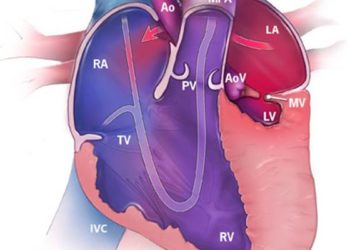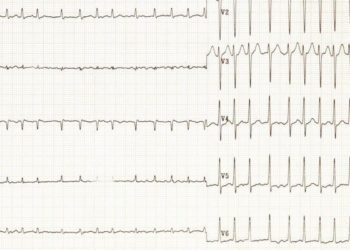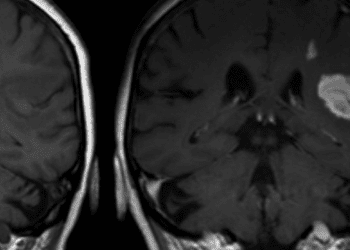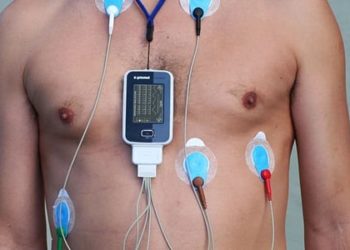Catheter ablation of atrial fibrillation in heart failure reduces mortality and hospitalization: The CASTLE-AF trial
1. Compared to medical therapy alone, catheter ablation of atrial fibrillation in patients with heart failure reduced the risk of all-cause mortality and hospitalization.
2. Procedural complications of catheter ablation included pericardial effusion and severe bleeding.
Evidence Rating Level: 1 (Excellent)
Study Rundown: Atrial fibrillation is a common comorbidity that worsens outcomes in heart failure. Multiple treatment options currently exist for atrial fibrillation. One such treatment is catheter ablation, although it is unclear whether ablation improves rates of hard endpoints in heart failure. This multicenter randomized trial sought to address this question by randomizing patients with systolic heart failure and atrial fibrillation to either catheter ablation or medical therapy. The primary endpoint was a composite risk of all-cause mortality and heart failure related hospitalization, and secondary endpoints included these outcomes individually. Compared to medical therapy, catheter ablation reduced the risk of the primary outcome, as well as the individual risks of death and hospitalization for heart failure. Ejection fraction was significantly increased in the ablation group. These data support the use of catheter ablation in appropriately selected populations with heart failure and atrial fibrillation.
Strengths of the study include its randomized controlled trial design which allows for an unbiased estimate of the effect of catheter ablation. Limitations include lack of blinding and industry funding, although the trial sponsor had no role in trial design or execution.
Click to read the study, published in NEJM
Relevant Reading: Atrial Fibrillation Begets Heart Failure and Vice Versa
In-Depth [ randomized controlled trial]: This multicenter randomized controlled trial conducted from 2008 to 2016 enrolled 398 patients, of whom 363 remained in the trial after a five week run-in phase. Patients were randomized into an ablation (n = 179) involving restoration of normal sinus rhythm, and a medical therapy (n = 184) group following standard clinical guidelines. To be enrolled, participants needed to have either paroxysmal or persistent atrial fibrillation, as well as stage II-IV NYHA heart failure with an ejection fraction of 35% or less. Participants needed to have had a lack of response to antiarrhythmic medications, or have had unacceptable side effects, or an unwillingness to take these medications. Finally, all participants must have had implantation of a Biotronik implantable cardioverter-defibrillator or cardiac resynchronization therapy defibrillator with remote-monitoring capability. The primary outcome was a composite of all-cause mortality and hospitalization for heart failure. These outcomes were also studied individually as secondary outcomes. Patients were followed using data from their implantable device, and clinical visits occurring up to 60 months after their baseline visit. Median follow-up was 37.6 months.
The risk of the primary composite end point was significantly lower in the ablation group relative to the medical therapy group (hazard ration [HR], 0.62; 95% confidence interval [CI], 0.48 to 0.87, p = 0.007). The number needed to treat to prevent the primary outcome was approximately 8 at 36 months. Statistically significant differences were also seen for reductions in all-cause mortality (HR, 0.53; 95%CI, 0.32 to 0.86, p = 0.01) and hospitalization for worsening heart failure (HR, 0.56; 95%CI, 0.37 to 0.83, p = 0.004). Benefits for risk of hospitalization were realized early after treatment, whereas risk of all-cause mortality diverged after three years. In the ablation group 3 patients had pericardial effusions, and 3 patients had severe bleeding that required blood transfusion.
Image: PD
©2018 2 Minute Medicine, Inc. All rights reserved. No works may be reproduced without expressed written consent from 2 Minute Medicine, Inc. Inquire about licensing here. No article should be construed as medical advice and is not intended as such by the authors or by 2 Minute Medicine, Inc.









